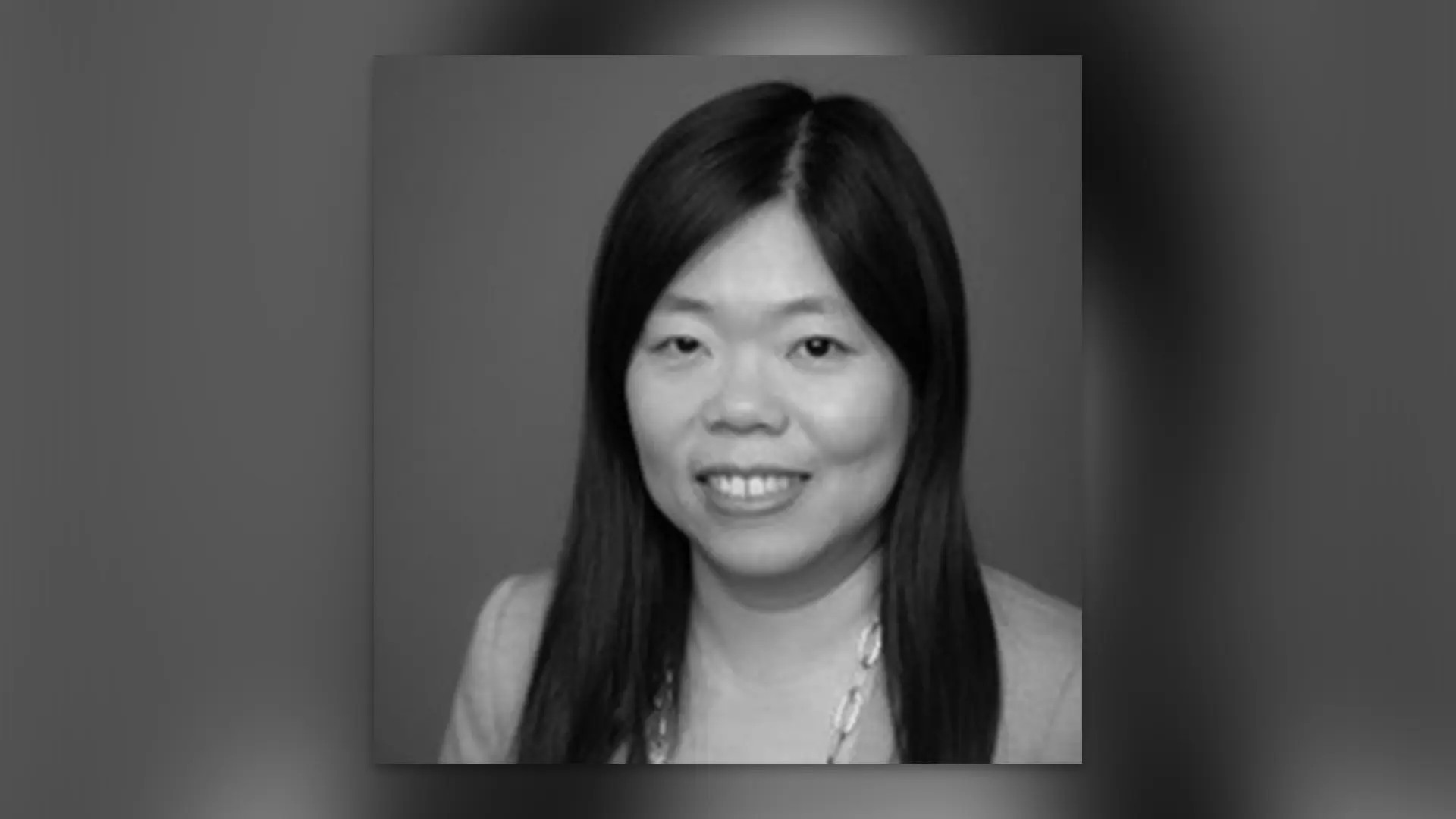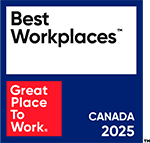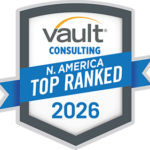
Interview - Delia Pan
Always Learning, Always Looking Forward: An Interview with Delia Pan
Hua Yu, Kelsey Deutschmann — July 16, 2025
We recently sat down with Delia to discuss her career journey, which has focused on exploring how technology shape everyday life. From her 17-year tenure at Rogers to her current role as Vice President and Practice Owner of Business Intelligence at TD, she has learned much along the way.
Balancing bold moves with thoughtful decisions has been Delia’s approach to both her personal and professional journey.
I’ve always said I’m a cautious adventurer; I want to explore, but I do it methodically while weighing the risks of my plan. This mindset became especially clear to me at the age of 25, when I moved to Canada, arriving on my own, ready to take on the unknown in a new country. I still remember landing at Pearson Airport, as I was processing my immigration papers and the Border Services Officer looked me in the eye and said, “You’re brave. Welcome to Canada.” That moment still sticks with me to this day.
When I looked for my internship during my MBA program, on one hand I had the option to join Johnson & Johnson, a well-established CPG brand that would’ve taken me back to the Chinese market, or to take a chance on joining a small but growing team at Rogers, which was a brand-new industry for me. I’ve always had a passion for data and a curiosity for the unknown, and at that time, Telecom was a new frontier – unfamiliar, but exciting. It would be a fast-changing, tech-driven space with data, technology, and transformation, and that’s where I always wanted to be.
Opting away from the mainstream route was challenging but rewarding for Delia when she had the once-in-a-lifetime opportunity to launch the iPhone 2 in Canada.
While I was at Rogers, I jumped on an opportunity to become a pricing manager on the mobile data team. At the time, Mobile data adoption was not yet mainstream, and I saw lots of room to grow within the role. When the iPhone 2 was set to launch in Canada, Rogers had the exclusive rights to it, and being one of the few with experience in data pricing, I was able to step into this important project. The stakes were incredibly high, and I was quite junior, but I was trusted to make meaningful contributions. That experience taught me that even junior voices can make an impact in the right environment, and it has shaped the way I lead teams today.
What stood out most to me was also how the organization came together. From Ted Rogers all the way through to the project team, everyone was committed. I saw firsthand the power of what happens when a company rallies behind a shared goal. It also taught me to ask for help when I need it. This all made me realize there’s strength in acknowledging your limits and leaning on your team.
Seventeen years later, I found myself at a crossroads. I had joined Rogers when the network was 2G, and now it was 5G. Everything had evolved – the spectrum, the products, and the customers. I had grown with the company and the industry, but I felt it was time to dive in a different direction. Around that time, I became fascinated by the technology employed in the Financial Service industry
I saw how quickly it was evolving and how essential it was becoming in people’s everyday lives. There was a little voice inside that said, ‘Why not?’ I may have been at a stable point in my career, but I didn’t feel done learning. So, when the opportunity at TD came up, it felt right.
A.I. is the future for all, and Delia encourages people to consider the part it will play in their reality.
I believe A.I. presents unlimited opportunities. It’s going to change how people live and how businesses serve their customers, and we’re only at the beginning of that transformation journey.
But, just like any new technology, A.I. requires careful planning. It’s a dramatic shift we’re all facing and it’s going to be here regardless. So, the question shifts to become how do you want to engage with it? That part is personal. It’s not something you can ignore. Just as with any other major change, some people will embrace it, while others won’t, however, the first step is to try. There are so many resources available, so experiment, learn, and see what AI means for you.
Strategic thinking involves multiple competencies, and Delia has developed her own lens to examine situations from various perspectives.
To build up strategic thinking, there are a few foundations. You need some analytical skills – not just data analytics – but the ability to connect the dots across different pieces of information. As you practice that, you start to build a story. Then you must ask yourself to zoom out and look at the big picture. I always say that if you’re dancing on the floor, you also need to go up to the balcony and check it out. Early in my career, I was lucky to have leaders who encouraged me to zoom in and zoom out. That taught me how to look beyond the action and reflect on the broader context.
Today, I use a framework I call ‘insight, oversight, foresight, and hindsight.’ Whether a topic is big or small, that model helps me look at it from every angle.
Strategic thinking doesn’t always mean going high-level, it means knowing the full picture, including what’s practical and what’s real.
It’s something I’ve developed over time, and I continue to refine it by learning from others. Strategic thinking can be trained, and in this fast-moving world, I believe it’s more important than ever.
When Delia began to own her voice, she recognized that her heritage could become a unique advantage in developing her leadership style.
My cultural background is Chinese, and I’ve found that it’s sometimes misunderstood. People often assume we’re not very direct, especially in business settings. But I’ve found that Chinese people can actually be incredibly straightforward. I’ve always aimed to be transparent: kind, yet honest and direct. Striking that balance has become a core part of my leadership style. I stay respectful, I stay focused on what matters, and I never make it personal. Being direct doesn’t mean being disrespectful. You can challenge something directly and still care deeply.
Coming to Canada, there were times, even in my dreams, when I’d be trying to speak and feel like no one could understand me. When you have something valuable to offer, but you can’t express it in the way you want, it affects your confidence and growth.
When I was doing my MBA, I was explaining to one of my professors that I had to translate everything from Chinese to English in my head. She said, “That’s okay. That’s your process.” At that moment, I realized there was no judgment from her. I felt a sense of relief, and from then on, I started to give myself permission to learn at my own pace and embrace the way my mind works.
Building a network that saw her potential, as well as her blind spots, helped Delia in moments that mattered – she advises others to do the same.
First, find a role model. This should be someone who resonates with you and shows you what’s possible. Then, build your network in a way that helps you see different styles, different paths, and figure out what fits best for you. It’s about opening your eyes.
One of the things that’s helped me most is having a trusted network of people who see me in action and aren’t afraid to be honest. When I’ve done well, they confirm it and help reinforce my confidence. When I haven’t been at my best, they’ve told me, and that’s how I’ve improved.
Mentors and sponsors are key in moments that matter, but your internal strength – your skills and your competency – is built over time. Honest feedback is essential for that. The world is moving fast, so we all need to keep growing, keep learning, and keep refining who we are and how we lead.





